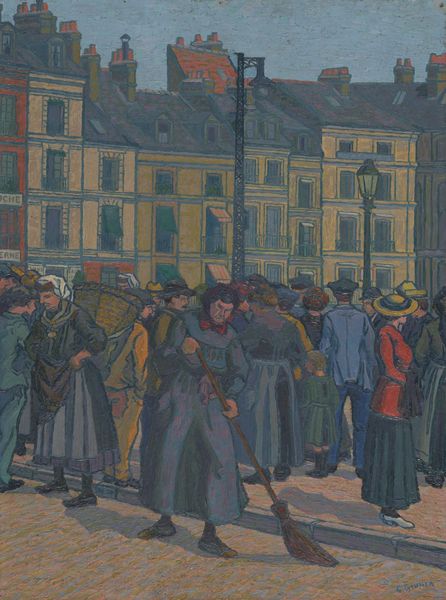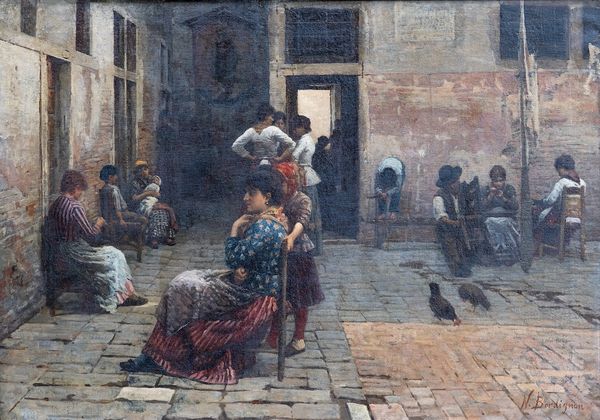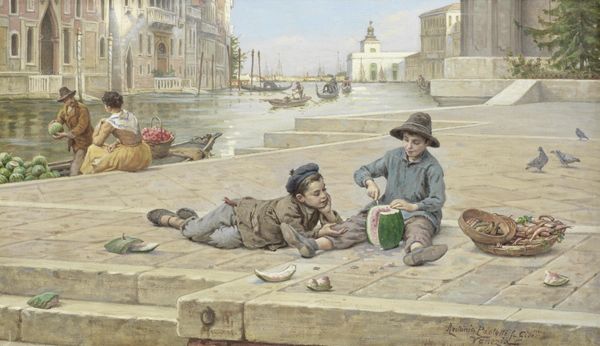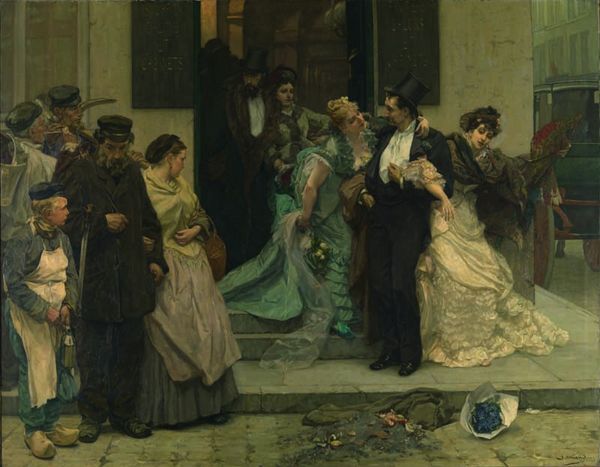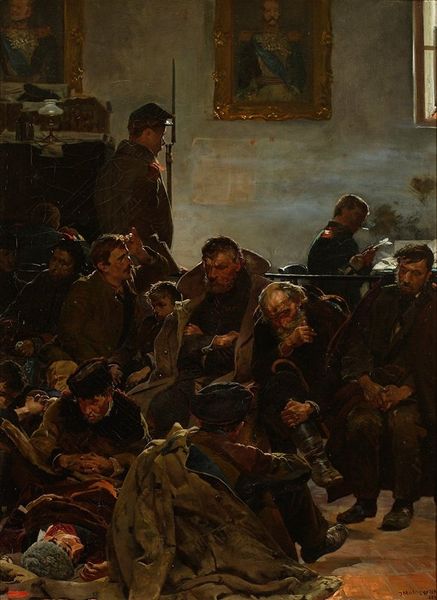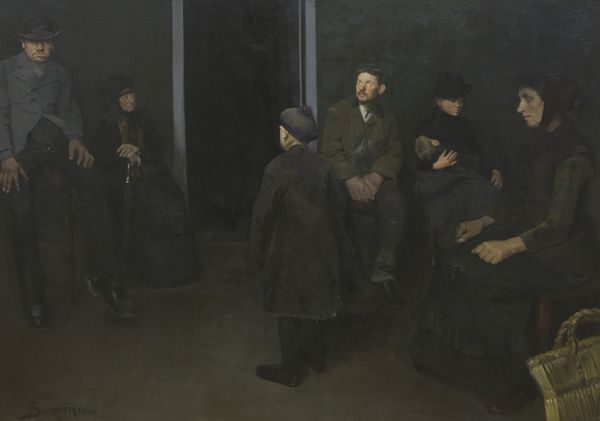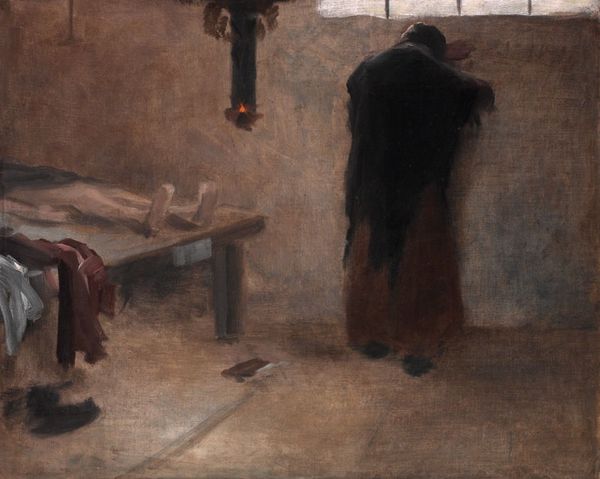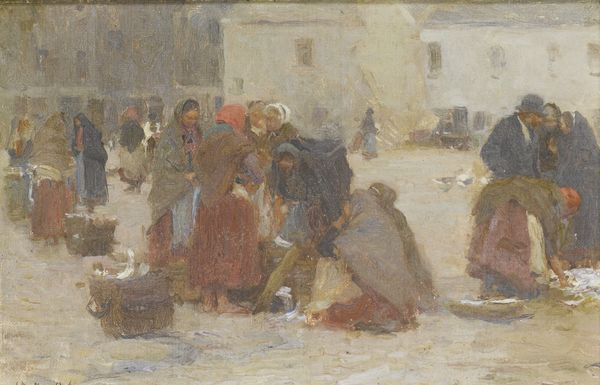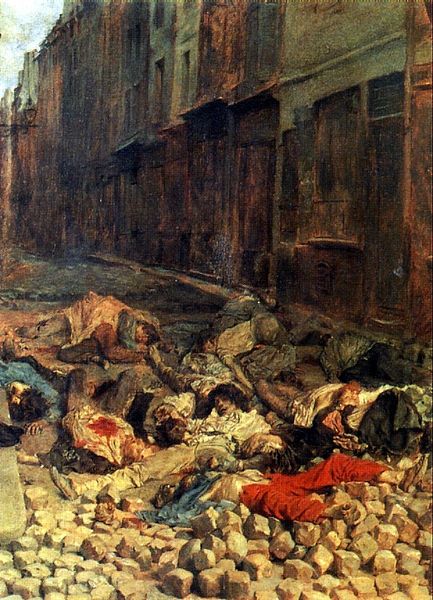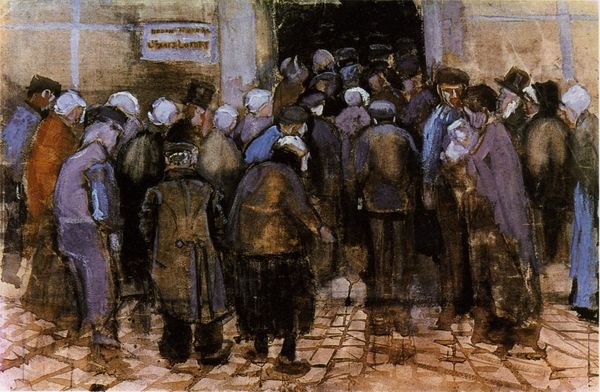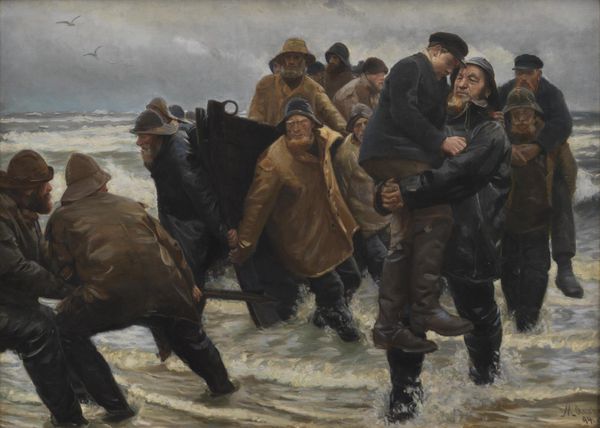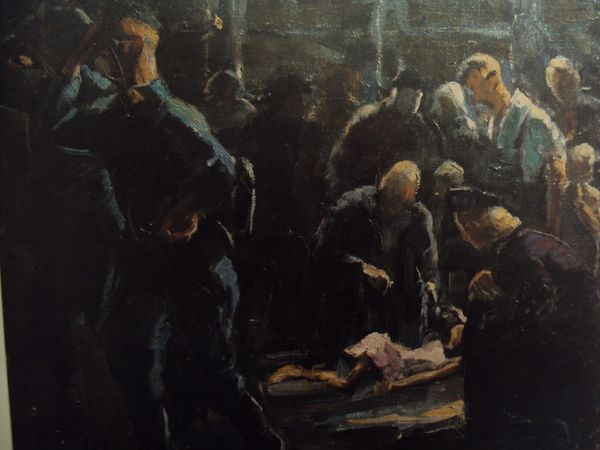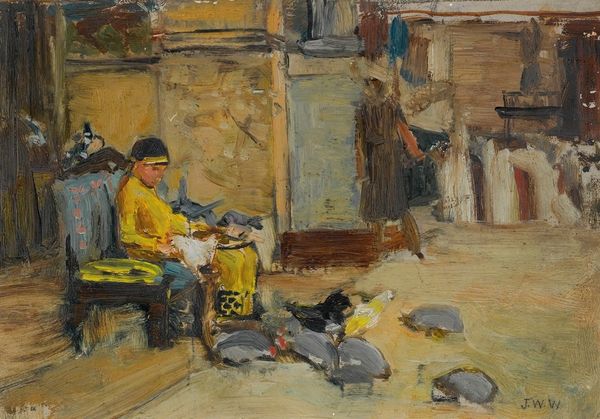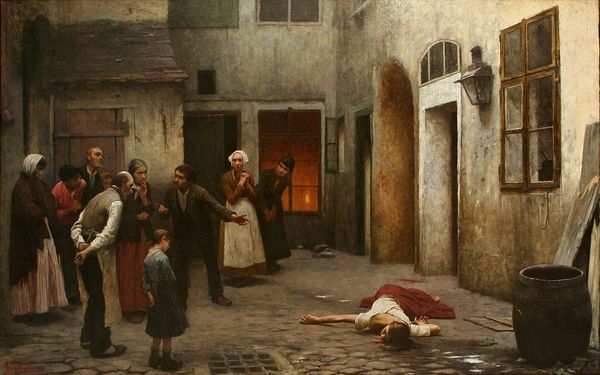
Copyright: Public Domain: Artvee
Curator: Maximilien Luce’s "A Street in Paris in May 1871," executed in oil paint between 1903 and 1906, captures a haunting street scene. The muted palette and the lifeless bodies immediately speak of tragedy. What’s your take, editor? Editor: It feels…still. Death usually bursts with screams or a final desperate fight, but here it’s like someone just hit the pause button on life itself. The colors are washed out like a memory fading in the sun. It's quite jarring. Curator: Indeed. Formally, Luce’s composition divides the canvas into distinct zones. The foreground, brutally displays the fallen. Then your eye travels towards the street to finally take the façades of Parisian buildings. Editor: So, the city looms, almost indifferent to the bodies in its street. Like an old building, solid and present while the temporary drama unfolds before it. Brutal irony there. The composition reminds me of stagecraft, these dead being set against the backdrop of life that just... continues. Curator: Yes. One could interpret this work through the lens of social realism, documenting the aftermath of conflict, while simultaneously engaging with impressionistic techniques in the rendering of light and atmosphere. Note, how Luce’s loose brushstrokes contribute to a sense of immediacy, drawing us into the scene's visceral reality. Editor: Right. Though that detached technique makes it so disturbing—the light doesn’t care about the dark deed; it just illuminates it for our cool consideration. If you’re too involved, you miss the cold truth he presents. It's like history being put on display. Curator: A chilling assessment. It forces contemplation. There is both something repelling and captivating. A grim tableau transformed into something arrestingly beautiful through purely aesthetic means. Editor: Beautiful, yes, but in the way a wound, examined carefully, reveals its hidden patterns. And by showing the end, he lets us glimpse something crucial about what came before. Curator: A somber and very astute closing reflection, bringing the various points we mentioned nicely into relief. Thank you. Editor: Anytime. An unsettling picture, but deeply rewarding to consider.
Comments
No comments
Be the first to comment and join the conversation on the ultimate creative platform.
